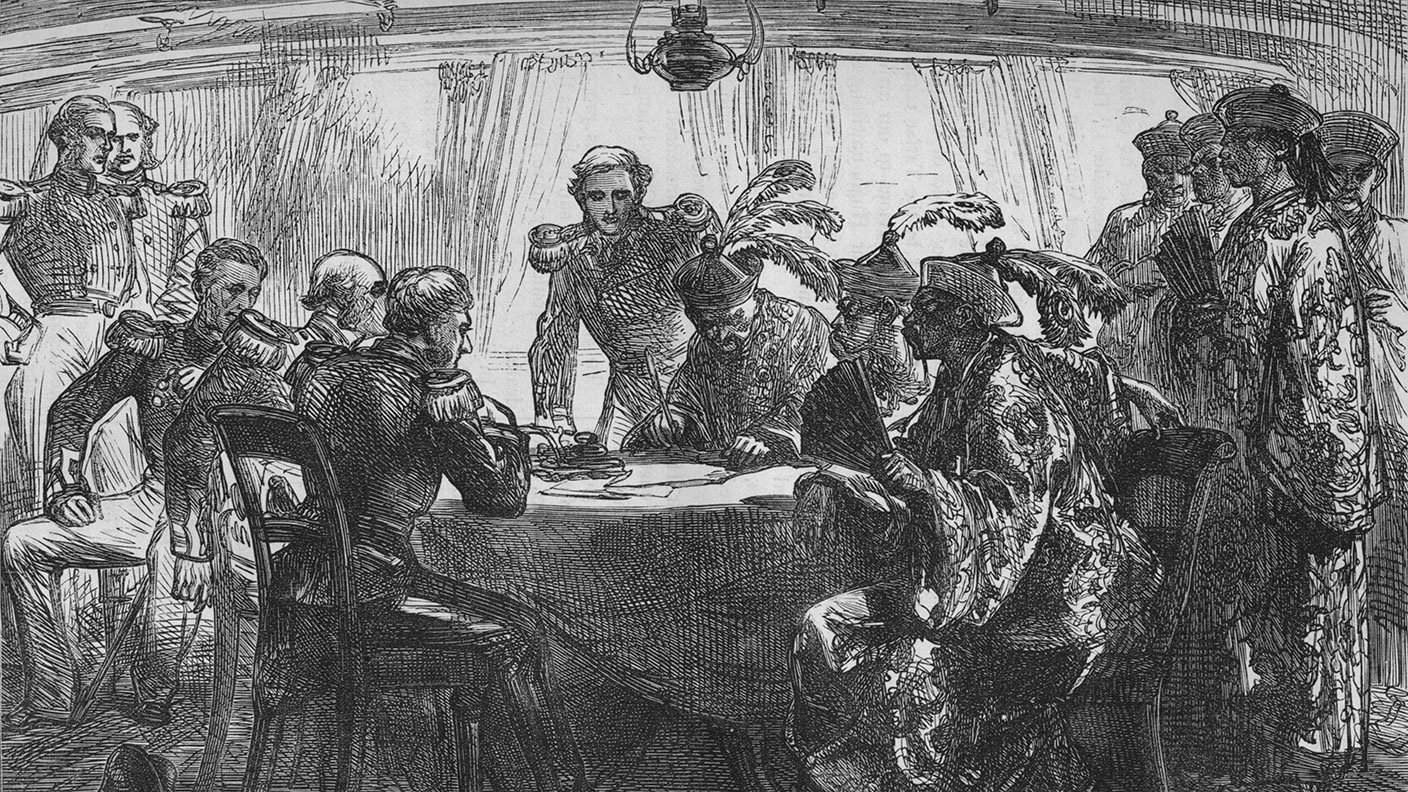29 August 1842: The first Opium war ends
On this day in 1842, the signing of the Treaty of Nanking ended the first Opium war with China.


Get the latest financial news, insights and expert analysis from our award-winning MoneyWeek team, to help you understand what really matters when it comes to your finances.
You are now subscribed
Your newsletter sign-up was successful
Want to add more newsletters?
Today, Western governments spend billions trying to stop the illegal drugs trade. However, in the 19th century, Britain not only encouraged the flow of hard drugs but also went to war twice to prevent China's government from stopping it.
At the time, China made it almost impossible for traders to sell British and other Western goods locally. The sole exception was tea from India. But tea merchants found they could boost profits by smuggling opium with their cargo.
Due to its addictive nature (it contains morphine), demand exploded, with smuggling networks springing up around the Chinese coast. Selling opium was officially discouraged. But smugglers simply bribed local officials – many of them addicts themselves – to look the other way.
Try 6 free issues of MoneyWeek today
Get unparalleled financial insight, analysis and expert opinion you can profit from.

Sign up to Money Morning
Don't miss the latest investment and personal finances news, market analysis, plus money-saving tips with our free twice-daily newsletter
Don't miss the latest investment and personal finances news, market analysis, plus money-saving tips with our free twice-daily newsletter
By the late 1830s, political pressure on China's Emperor was growing. Not only was there concern at the social and economic costs of the trade, but gold and silver was flowing out of China to pay for opium imports.
A direct appeal to Queen Victoria failed. So a hard-line trade commissioner, Lin Zexu, was appointed. He cracked down, confiscating British traders' opium supplies and forcing them to pledge their goods (and lives) against a return to the trade.
The British government backed the measures until it realised it would have to compensate traders. It launched a military blockade of China. Within two years China had been forced into signing the Treaty of Nanking, legalising the trade and removing restrictions on other British goods.
While Chinese historians consider this as a national humiliation, there is also agreement that it opened China up to the rest of the world.
Get the latest financial news, insights and expert analysis from our award-winning MoneyWeek team, to help you understand what really matters when it comes to your finances.

-
 Do you face ‘double whammy’ inheritance tax blow? How to lessen the impact
Do you face ‘double whammy’ inheritance tax blow? How to lessen the impactFrozen tax thresholds and pensions falling within the scope of inheritance tax will drag thousands more estates into losing their residence nil-rate band, analysis suggests
-
 Has the market misjudged Relx?
Has the market misjudged Relx?Relx shares fell on fears that AI was about to eat its lunch, but the firm remains well placed to thrive
-
 31 August 1957: the Federation of Malaya declares independence from the UK
31 August 1957: the Federation of Malaya declares independence from the UKFeatures On this day in 1957, after ten years of preparation, the Federation of Malaya became an independent nation.
-
 13 April 1960: the first satellite navigation system is launched
13 April 1960: the first satellite navigation system is launchedFeatures On this day in 1960, Nasa sent the Transit 1B satellite into orbit to provide positioning for the US Navy’s fleet of Polaris ballistic missile submarines.
-
 9 April 1838: National Gallery opens in Trafalgar Square
9 April 1838: National Gallery opens in Trafalgar SquareFeatures On this day in 1838, William Wilkins’ new National Gallery building in Trafalgar Square opened to the public.
-
3 March 1962: British Antarctic Territory is created
Features On this day in 1962, Britain formed the British Antarctic Territory administered from the Falkland Islands.
-
10 March 2000: the dotcom bubble peaks
Features Tech mania fanned by the dawning of the internet age inflated the dotcom bubble to maximum extent, on this day in 2000.
-
9 March 1776: Adam Smith publishes 'The Wealth of Nations'
Features On this day in 1776, Adam Smith, the “father of modern economics”, published his hugely influential book The Wealth of Nations.
-
 8 March 1817: the New York Stock Exchange is formed
8 March 1817: the New York Stock Exchange is formedFeatures On this day in 1817, a group of brokers moved out of a New York coffee house to form what would become the biggest stock exchange in the world.
-
7 March 1969: Queen Elizabeth II officially opens the Victoria Line
Features On this day in 1969, Queen Elizabeth II took only her second trip on the tube to officially open the underground’s newest line – the Victoria Line.